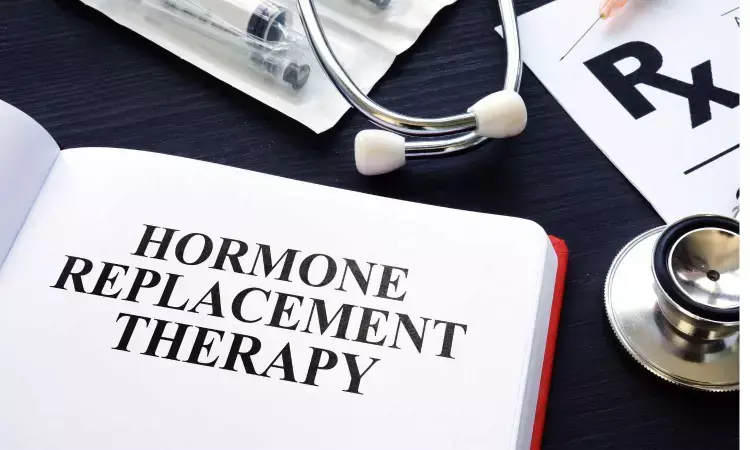- Home
- Medical news & Guidelines
- Anesthesiology
- Cardiology and CTVS
- Critical Care
- Dentistry
- Dermatology
- Diabetes and Endocrinology
- ENT
- Gastroenterology
- Medicine
- Nephrology
- Neurology
- Obstretics-Gynaecology
- Oncology
- Ophthalmology
- Orthopaedics
- Pediatrics-Neonatology
- Psychiatry
- Pulmonology
- Radiology
- Surgery
- Urology
- Laboratory Medicine
- Diet
- Nursing
- Paramedical
- Physiotherapy
- Health news
- Fact Check
- Bone Health Fact Check
- Brain Health Fact Check
- Cancer Related Fact Check
- Child Care Fact Check
- Dental and oral health fact check
- Diabetes and metabolic health fact check
- Diet and Nutrition Fact Check
- Eye and ENT Care Fact Check
- Fitness fact check
- Gut health fact check
- Heart health fact check
- Kidney health fact check
- Medical education fact check
- Men's health fact check
- Respiratory fact check
- Skin and hair care fact check
- Vaccine and Immunization fact check
- Women's health fact check
- AYUSH
- State News
- Andaman and Nicobar Islands
- Andhra Pradesh
- Arunachal Pradesh
- Assam
- Bihar
- Chandigarh
- Chattisgarh
- Dadra and Nagar Haveli
- Daman and Diu
- Delhi
- Goa
- Gujarat
- Haryana
- Himachal Pradesh
- Jammu & Kashmir
- Jharkhand
- Karnataka
- Kerala
- Ladakh
- Lakshadweep
- Madhya Pradesh
- Maharashtra
- Manipur
- Meghalaya
- Mizoram
- Nagaland
- Odisha
- Puducherry
- Punjab
- Rajasthan
- Sikkim
- Tamil Nadu
- Telangana
- Tripura
- Uttar Pradesh
- Uttrakhand
- West Bengal
- Medical Education
- Industry
HRT Linked to Lower Periodontitis Prevalence, But Not Severity: Study

Researchers have found in a new study that Hormone replacement therapy (HRT) is associated with a reduced prevalence of periodontitis, though it does not impact the disease's severity. Therefore collaborative care between dental and medical professionals is advised, and further studies are needed to evaluate the effects of various HRT formulations and address existing research limitations. The study was published in the journal BMC Women’s Health by Raneem A. and colleagues.
Menopause sets in motion a series of changes at the physiological level in women, some of which impact oral health. Decreased levels of estrogen have been linked to a loss in bone density and inflammation, both of which make gum disease worse. Periodontitis, a chronic inflammatory disease which destroys the soft tissue and supporting bone around the teeth, becomes more frequent after menopause. While HRT is commonly administered to control symptoms of menopause like hot flashes and mood swings, it has not previously been evaluated for all its oral health benefits. This case-control study, conducted on 372 postmenopausal Saudi Arabian women, was designed to study the relationship of HRT with periodontal health, i.e., prevalence and severity of periodontal disease.
The study was performed in several healthcare centers in Jeddah, Saudi Arabia. 372 postmenopausal women took part in the study, of whom 186 had periodontitis and 186 had healthy periodontium. Periodontal status was evaluated according to the 2017 classification by the American Academy of Periodontology. A validated questionnaire was filled out by the participants, and some of the periodontal parameters were measured, including Clinical Attachment Loss (CAL), saliva secretion rate, and bone loss. Statistical analysis included logistic regression and odds ratios for categorical variables and t-tests and linear regression for continuous variables.
Key Findings
• The findings indicated that women who applied HRT were less likely to develop periodontitis significantly.
• The chance of having periodontitis was 3.2 times lower in HRT users than in non-users (OR = 0.31, p < 0.05, 95% CI: 0.11–0.89).
• After controlling for medical and demographic variables, the odds reduced further to almost six times less likely (OR = 0.17, p < 0.05, 95% CI: 0.04–0.81).
• Although HRT lowered the risk of gum disease development, it did not appreciably affect the severity of the disease if it was already present.
• Use of HRT was strongly related to lower clinical attachment loss (Coef = -1.13, p < 0.05, 95% CI: -2.26 to -0.02), although this lost significance after adjusting for medical and social variables.
• There was no difference in levels of bone loss and saliva secretion between the HRT user and non-user groups when considered as both numerical and categorical data.
The authors suggest increased coordination between medical and dental practitioners in menopause management and recommend further study to investigate the long-term implications and different preparations of HRT on oral health outcomes.
Reference:
Ageel, R., Abaalkhail, B. & Natto, Z.S. Effect of hormone replacement therapy on periodontal health in post-menopausal women in Jeddah, Saudi Arabia. BMC Women's Health 25, 383 (2025).https://doi.org/10.1186/s12905-025-03757-5
Dr Riya Dave has completed dentistry from Gujarat University in 2022. She is a dentist and accomplished medical and scientific writer known for her commitment to bridging the gap between clinical expertise and accessible healthcare information. She has been actively involved in writing blogs related to health and wellness.
Dr Kamal Kant Kohli-MBBS, DTCD- a chest specialist with more than 30 years of practice and a flair for writing clinical articles, Dr Kamal Kant Kohli joined Medical Dialogues as a Chief Editor of Medical News. Besides writing articles, as an editor, he proofreads and verifies all the medical content published on Medical Dialogues including those coming from journals, studies,medical conferences,guidelines etc. Email: drkohli@medicaldialogues.in. Contact no. 011-43720751


